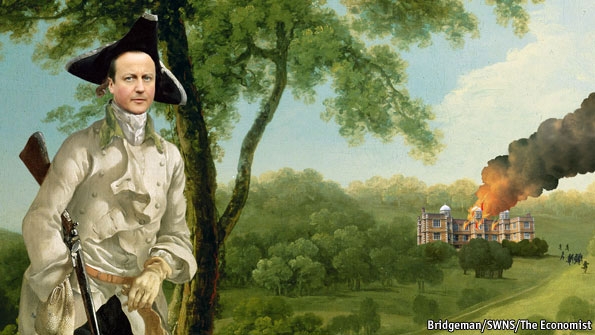For The Economist‘s take on the shape of the United Kingdom and the governing Conservative Party’s mid-term slump, see “The Cameron Government: Crisis? What Crisis?“. Excerpt:
Two years ago this week David Cameron and Nick Clegg launched their coalition government in a sun-dappled Downing Street garden, at a joint press conference so filled with smiles, jokes and shared glances that it was compared to a gay wedding. On May 8th Britain’s Conservative prime minister and his Liberal Democrat deputy renewed their coalition vows in a tractor factory. There were few jokes. The work of government was “hard”, Mr Cameron told stony-faced workers.
Two-thirds of voters now disapprove of Mr Cameron’s performance and three-quarters disdain Mr Clegg’s. In local elections on May 3rd their parties lost hundreds of council seats, mostly to the opposition Labour Party: when Boris Johnson, the Tory mayor of London, bucked the trend and kept his job, that prompted gossip that he would be a better leader.
Britain’s economy has dipped back into recession. A judicial inquiry into the press has revealed a shamefully cosy relationship between Conservative leaders and newspapers owned by Rupert Murdoch. The government, and the prime minister in particular, are described as “out of touch” and told to “get a grip”””and that is just to quote Conservatives in Parliament.

